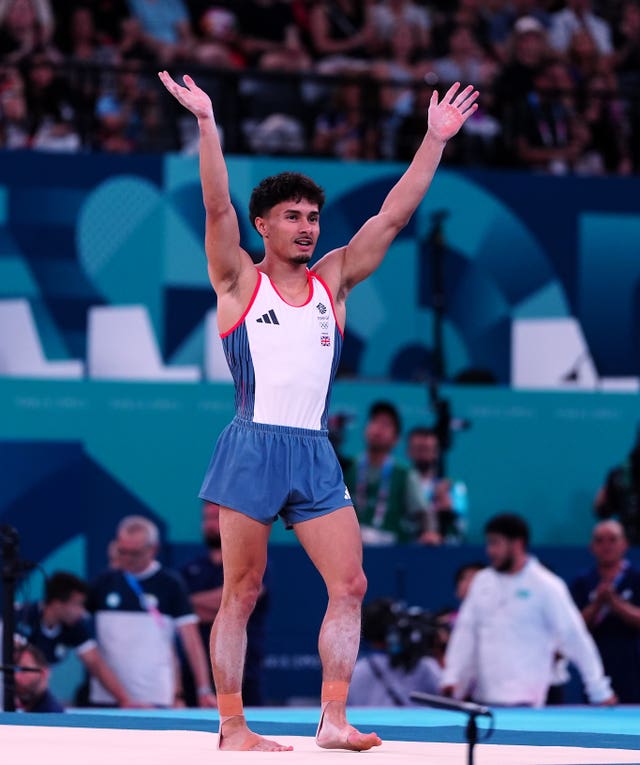An emotional Max Whitlock could not hide his disappointment after a heartbreaking end to his historic gymnastics career.
The 31-year-old had hoped to sign off with a third successive Olympic title on the pommel horse but was marked down for errors during his fiendishly difficult routine and could only finish fourth.
Gold went to Whitlock’s rival Rhys McClenaghan, who became Ireland’s first ever Olympic medallist in artistic gymnastics, with Nariman Kurbanov of Kazakhstan taking silver and American Stephen Nedoroscik 0.1 ahead of Whitlock in bronze.

“It was hard, it was my final one. I, of course, didn’t want it to finish that way but, coming to Paris with the decision made that this was going to be my final one – not based on what the outcome would be, just based on getting here in the first place and making my fourth Olympic Games – I’m proud of that.
“Of course I would have liked this chapter to end a little bit better but it wasn’t to be. There’s a reason for everything and I think it wasn’t my day today. It was a very, very strong pommel final, amazing routines from everybody.”
After winning gold in Tokyo, Whitlock made a private decision to step away from the sport only to change his mind and give it one last shot.
“I did my routine but it’s just some small errors I wish I could clean up. I wish I could go back and do it again but that’s the savage part of our sport. You get one shot and one shot only.”
Whitlock was watched by his young daughter Willow, and he ends his career as Britain’s most successful gymnast with six Olympic medals, three of them gold.
“I suppose it’s important to think about that now, at times like this,” he said. “If you take it back to before 2012 when I was a 19-year-old, I really, really, really dreamt I could get a medal. But I didn’t know how possible it was. To be standing here – and I’ve finished now – with six, I can be very happy.”

“I want to be remembered for what I do next,” he added.
McClenaghan was the one in despair in Tokyo after he could only finish seventh but he went into this final as the leading qualifier and two-time world champion and played the role to perfection.
Kurbanov opened the competition with a huge score of 15.433 but, as soon as McClenaghan’s mark came up as 15.533, he looked destined for gold.
The Northern Irishman said: “It feels like a dream. It’s a dream well earned and I just can’t believe it’s happened. It always felt like it was going to happen but I wasn’t sure when.
Lived it. Loved it. Max Whitlock ? #Paris2024 pic.twitter.com/2VoC4g0Uds
— Team GB (@TeamGB) August 3, 2024
“Listen, everybody at home, see this as an example of find a dream that you love, chase it and enjoy that journey because, I can tell you, if I fell off that pommel today, I still would have loved this journey, every single second of it, but I didn’t and today I’m walking away with an Olympic gold medal.”
Earlier, Jake Jarman claimed his first Olympic medal and Britain’s first in artistic gymnastics this Games with bronze on the floor.
The 22-year-old had the highest score in qualifying and also topped the floor standings during the men’s all-around final.
But his routine was not quite as clean as that of gold medallist Carlos Edriel Yulo of the Philippines, who scored 15.001 to become the first man from his country to win an Olympic title, while Israel’s Artem Dolgopyat took silver, with Jarman just behind on 14.933.

“I’ve only got a bronze medal at a European Championships so, to be walking away with an Olympic medal, I feel like I’ve skipped a step. It’s unbelievable.”
Jarman’s team-mate Luke Whitehouse, European champion in the discipline, finished down in sixth with 14.466 despite a very impressive routine after being marked down for difficulty following a low landing.






